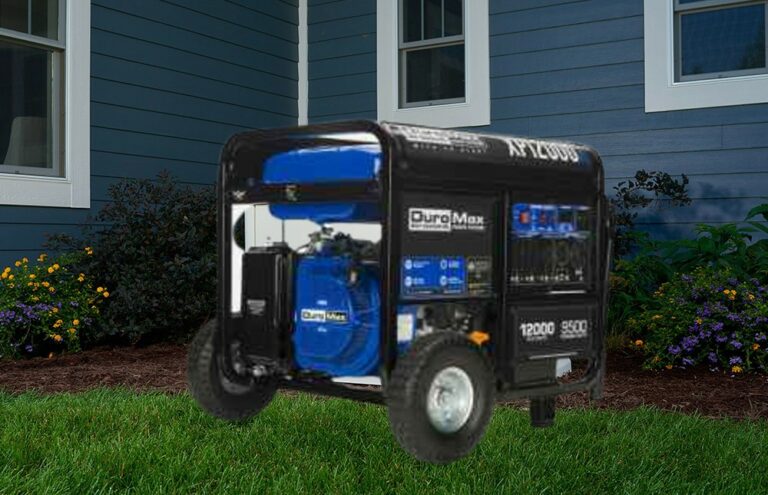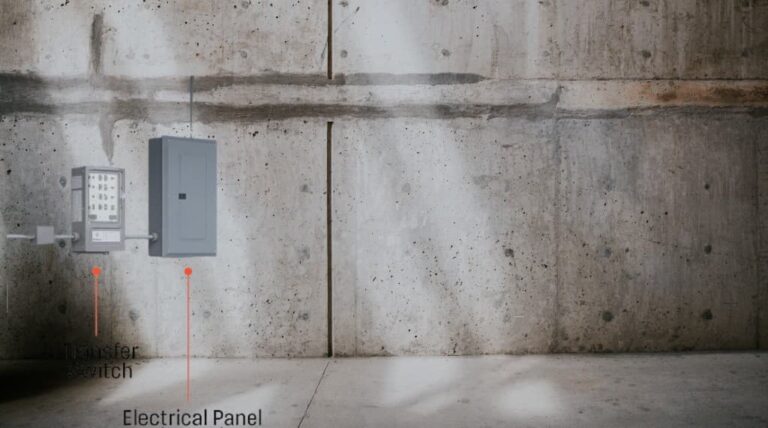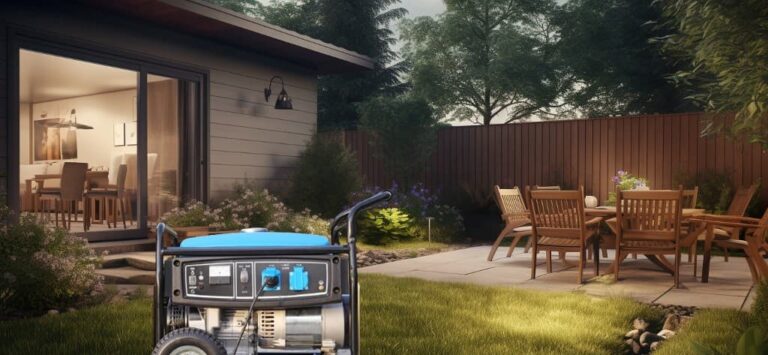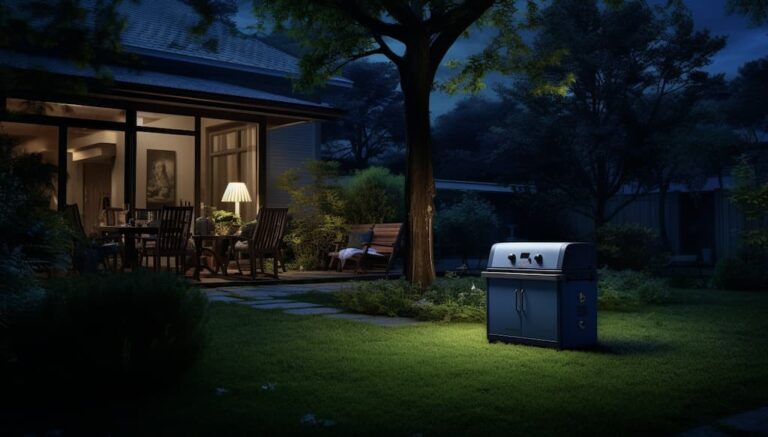Can a Generator Get Wet? What to Do.
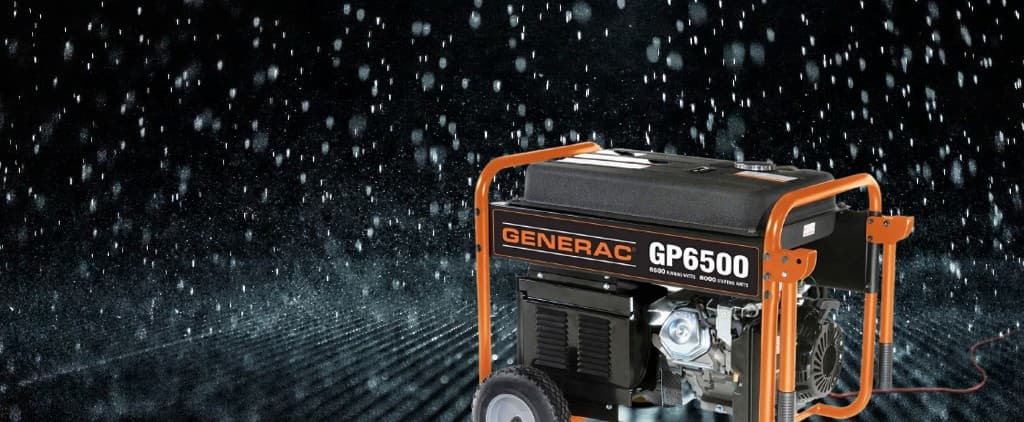
Are you wondering if your generator can handle getting wet? If it does, what should you do? Knowing the answers to these questions is essential, particularly if you plan on utilizing your generator in wet weather conditions. Running an uncovered generator in the rain can cause damage and pose an electrocution risk. But don’t fret; there are ways to keep your generator safe and dry. This discussion will explore the dangers of using a generator in wet weather and provide tips on protecting it.
First, it is crucial to understand the potential hazards associated with operating a generator in wet conditions. Not only can water damage the internal components of the generator, but it can also increase the risk of electrocution. These risks should not be taken lightly. Therefore, it is important to take necessary precautions to keep your generator protected from moisture.
Investing in a generator cover is one option to safeguard your generator from wet conditions. Using a cover specifically designed for generators, you can provide an additional layer of protection against rain and other forms of moisture. Additionally, you may consider placing your generator in a sheltered area, such as a shed or a canopy, to shield it from direct exposure to rain.
Another crucial aspect to consider is the placement of your generator. It is advisable to position it on a raised platform or elevated surface, ensuring it is not in direct contact with standing water. Doing so reduces the risk of water seeping into the generator and causing potential damage.
Furthermore, routine maintenance is equally important when protecting your generator from the effects of wet weather. Regularly inspecting and cleaning your generator can help prevent the buildup of moisture and debris, leading to corrosion and other issues. Additionally, it is recommended to have a professional technician service your generator at regular intervals to ensure optimal performance and longevity.
In conclusion, it is vital to understand the risks associated with using a generator in wet weather conditions. Not only can water damage the internal components of the generator, but it can also pose a significant safety hazard. Therefore, taking necessary precautions, such as using a generator cover, positioning the generator appropriately, and performing routine maintenance, is of utmost importance. By following these guidelines, you can ensure the safety and longevity of your generator, even in wet weather conditions.
The Risks of Running a Generator in Wet Weather
Running a generator during wet weather puts you at risk of electrical shock and potential damage to the generator’s electrical panel. Using a generator in rainy or damp conditions can be hazardous for both you and your generator.
Moisture can seep into the outlets, causing short circuits or harm to the generator’s wiring. This not only poses a safety hazard, but it can also result in costly repairs or the need for a new generator.
To safeguard your generator from rainfall, it’s essential to utilize a generator cover or shelter. In the following section, we’ll explore different methods of protecting your portable generator from rain and moisture to ensure its durability and safe operation.
Protecting Your Portable Generator From Rain and Moisture
To protect your portable generator from rain and moisture, it’s essential to utilize a weatherproof cover and store it in a dry and sheltered location. Operating a portable generator in wet weather can be perilous and may damage the generator. Water has the potential to infiltrate the outlets and harm the electrical panel, presenting a risk of electric shock.
Prioritizing safety is of utmost importance, and avoiding using a generator in the rain or near water sources is advisable. Instead, consider investing in a whole-house backup generator designed to operate safely in inclement weather. These generators are equipped with protective covers and can be a dependable power source for your home during power outages.
The Benefits of Whole-House Backup Generators in Inclement Weather
Investing in a whole-house backup generator can provide a reliable power source during bad weather, keeping your home safe and comfortable. Unlike portable generators, whole-house backup generators are built to withstand wet conditions without getting damaged. You won’t have to worry about running the generator in wet weather or risking any harm.
These generators have protective covers that keep them safe from rain, ensuring they continue operating efficiently. With a whole-house backup generator, you can have peace of mind knowing that your power supply won’t be disrupted during storms or other wet conditions.
Don’t let the fear of damaging your generator hold you back from investing in a whole-house backup generator, as they’re designed to handle wet weather and provide you with a reliable power source when you need it most.
Choosing the Right Generator Cover for Rainy Conditions
Choosing the right cover for your generator during rainy conditions is vital to safeguard it from potential damage and ensure its safe and dependable operation. When keeping your generator dry in inclement weather, a generator cover is an indispensable accessory.
A generator cover is a barrier, shielding your generator from rain, snow, and other moisture. It aids in preventing water from infiltrating the generator, which can lead to electrical harm and even pose a safety hazard.
Whether you possess a portable generator or a whole-house backup generator, finding the appropriate cover that fits your generator is essential. Be sure to select a cover that’s waterproof, durable, and precisely tailored to your generator model.
With the right generator cover, you can have peace of mind knowing that your generator is shielded from the elements and will continue to provide power when you require it most.
Ensuring a Safe and Weatherproof Power Cord Connection
When using a portable generator in wet weather, it’s crucial to ensure a safe and weatherproof power cord connection to prevent electrical accidents.
Operating a generator in rainy conditions can be risky, as water has the potential to damage the generator and increase the likelihood of electrical shocks or explosions.
It’s of utmost importance to have a power cord connection designed to withstand wet conditions and protect against water damage.
A weatherproof power cord not only prevents electrical shorts and potential hazards but also ensures your and your generator’s safety.
By utilizing a weatherproof power cord, you can have peace of mind knowing that your generator will operate efficiently and reliably, even in inclement weather.
Now, let’s explore the significance of a weatherproof power cord for generator safety.
Why a Weatherproof Power Cord Is Essential for Generator Safety
Using a weatherproof power cord for your generator ensures a secure and dependable power supply in inclement weather conditions. When utilizing a generator in damp weather, it’s vital to take precautions to safeguard yourself and your equipment.
If you’re using a generator in the garage, ensure proper ventilation and avoid operating it indoors to prevent carbon monoxide poisoning. Consider using a generator tent or DIY cover to dry your generator during light rainfall. However, if you anticipate heavy rain or stormy weather, you should refrain from using the generator altogether.
Investing in a weatherproof power cord not only shields your generator from water damage but also guarantees safe usage in wet conditions without concerns of electrical shorts or potential hazards.
Factors to Consider When Selecting a Weatherproof Power Cord
To ensure the safety and effectiveness of your generator, it’s important to consider various factors when selecting a weatherproof power cord. Here are some things to keep in mind:
- Length: Make sure the power cord is of sufficient length to reach the desired location without causing any strain or stretching.
- Amp rating: Ensure that the power cord can handle the electrical load of your generator without experiencing overheating or any other issues.
- Quality: Look for a weatherproof power cord crafted from durable materials that withstand harsh weather conditions.
- Compatibility: Verify that the power cord is compatible with the outlets on your generator to establish a secure and safe connection.
- Cost-effectiveness: Consider the value for money when choosing a weatherproof power cord that meets all your requirements.
Recommended Weatherproof Power Cord for Rainy Conditions
To ensure the safety and reliability of your generator during rainy conditions, consider investing in the Yodotek Generator Locking Power Cord. This power cord is highly regarded by customers and boasts a weatherproof design.
When heavy rain descends, it’s imperative to shield your portable generator from moisture. Water can potentially harm the generator and jeopardize the safety of both you and those nearby. By utilizing a weatherproof power cord such as the Yodotek Generator Locking Power Cord, you can safeguard your generator and maintain an uninterrupted power supply even during storms.
This top-notch power cord is precisely engineered to endure harsh weather conditions and is compatible with various generator models. You can enjoy peace of mind by procuring a weatherproof power cord, knowing that your generator is shielded and will continue to function optimally, even during heavy rainfall.
Generator Safety Tips: Protecting Your Home And Your Investment
Frequently Asked Questions
Are There Any Risks Associated With Using a Generator in Wet Weather?
Using a generator during wet weather comes with potential hazards. Moisture can harm the generator’s electrical panel and outlets, and even lead to electrocution. It is imperative to keep the generator dry, employ a generator tent, and adhere to safety measures to avert mishaps.
Now, let’s delve into the risks of operating a generator in damp conditions. Water possesses the capacity to cause damage to the generator’s electrical components, including the panel and outlets. This can result in malfunctions or even render the generator inoperable. Furthermore, the presence of water increases the likelihood of electrocution, which can have severe consequences.
To mitigate these risks, it is crucial to prioritize the generator’s protection from moisture. Employing a generator tent or shelter can provide a valuable safeguard against dampness. This protective covering shields the generator from direct exposure to rain or other wet conditions, reducing the potential for damage.
Additionally, it is equally important to follow safety precautions to ensure personal well-being. Electrical equipment should never be operated in wet conditions, as the combination of water and electricity can be extremely hazardous. Individuals should exercise caution and avoid touching the generator or its electrical components with wet hands or while standing in wet areas.
How Can I Protect My Portable Generator From Rain and Moisture?
To safeguard your portable generator from rain and moisture, it is advisable to refrain from using it in damp conditions. Consider utilizing a shelter or enclosure specifically designed for generators, ensure the power cord is resistant to inclement weather, and regularly examine and maintain the generator for secure operation.
It is essential to prioritize the protection of your portable generator from rain and moisture. Wet conditions can potentially cause damage and compromise the functionality of the generator. Therefore, it is crucial to exercise caution and avoid exposing the generator to water.
You may consider acquiring a specialized tent or cover intended for generators. These protective enclosures can shield your generator from rain and moisture, providing an extra defense against the elements. Investing in such equipment can significantly reduce the risk of water damage and prolong the lifespan of your generator.
Additionally, it is important to ensure that the power cord connected to the generator is weatherproof. This will prevent water from seeping into the electrical components and causing potential hazards. Inspect the power cord for any signs of damage or wear, and promptly replace it if necessary.
Regular inspection and maintenance of your generator are equally important in safeguarding it from rain and moisture. By routinely examining the generator, you can identify potential issues or areas of concern. Inspect the generator for any signs of water damage, such as rust or corrosion, and address these problems promptly. Furthermore, ensure that all components are securely fastened and properly sealed to prevent water from entering.
What Are the Benefits of Using a Whole-House Backup Generator During Inclement Weather?
Using a whole-house backup generator during inclement weather provides a reliable power source for your entire home. It eliminates the need to worry about operating a portable generator in the rain and ensures safety and comfort.
In addition to these benefits, a whole-house backup generator grants you peace of mind. You can rest assured knowing you will not be left without electricity during severe weather conditions. This is especially crucial for individuals who rely on medical equipment that requires a continuous power supply.
Moreover, utilizing a whole-house backup generator is a wise investment. While portable generators may suffice for short-term power outages, they are not designed to provide long-term solutions. With a whole-house backup generator, you can be confident that your entire home will remain powered, regardless of the duration of the inclement weather.
Furthermore, whole-house backup generators are engineered to integrate with your existing electrical system seamlessly. This means that once installed, the generator will automatically switch on during a power outage, ensuring uninterrupted power supply to your home. This convenience is unparalleled and uniquely tailored to meet your specific needs.
Not only does a whole-house backup generator provide reliable power, but it also enhances the safety of your home. During severe weather, power lines can become damaged, posing a significant safety hazard. By relying on a whole-house backup generator, you can minimize the risk of electrical accidents and potential damage to your property.
Learn More !!! Powering Your Appliances With Portable Generators
What Factors Should I Consider When Choosing a Generator Cover for Rainy Conditions?
When selecting a cover for your generator in rainy conditions, it’s essential to consider certain factors. These include the sturdiness of the cover, adequate airflow, and its ability to repel water. It’s important to choose a cover that properly fits your generator and offers ample protection. Considering these aspects will help ensure your generator remains secure and dry during inclement weather.
Why Is a Weatherproof Power Cord Essential for Generator Safety?
Using a weatherproof power cord is crucial for ensuring the safety of your generator. It provides protection against water damage, guarantees a dependable power supply, and reduces the chances of accidents. It is important not to overlook this vital safety precaution.
Delving into why a weatherproof power cord is essential, it is necessary to consider the potential risks associated with water damage. Using a weatherproof cord, you can safeguard your generator from the harmful effects of water, such as short circuits or electrical malfunctions. Furthermore, a reliable power supply is assured when utilizing a weatherproof cord, preventing any disruptions caused by moisture or damp conditions.
In light of safety, it is equally important to mention that a weatherproof power cord minimizes the risk of accidents. Shielding the electrical connections from water exposure significantly reduces the possibility of electrical shocks or fires. A weatherproof cord provides a level of protection uniquely designed to withstand harsh weather conditions, ensuring the utmost safety for your generator and those around it.
Moreover, a weatherproof power cord and other safety measures, such as proper grounding and regular maintenance, play a vital role in ensuring the smooth operation of your generator. Of course, safety should always be a top priority. Likewise, it is crucial to consider the importance of a weatherproof cord compared to other safety precautions. Correspondingly, a generator equipped with a weatherproof power cord is more reliable and secure, ensuring uninterrupted power supply during adverse weather conditions.
Furthermore, it is worth mentioning that a weatherproof power cord protects against water damage and shields the generator from other environmental elements, such as dust and debris. Additionally, it is important to note that a weatherproof cord is designed to withstand extreme temperatures, making it suitable for use in diverse weather conditions.
Therefore, using a weatherproof power cord should be a top priority when it comes to generator safety. Firstly, it protects against water damage and other environmental factors that could compromise the performance of your generator. Secondly, it ensures a dependable power supply, eliminating any potential disruptions caused by moisture or dampness. Thirdly, it significantly reduces the risk of accidents, keeping your generator and those nearby safe.
Conclusion
To safeguard your generator from wet weather conditions and minimize the risks of damage and electrocution, it’s vital to take certain precautions.
One option is to invest in a whole-home backup generator equipped with a protective cover. This will shield your generator from rain and ensure it remains dry and secure.
Another alternative is to use a specialized tent or cover designed specifically for generators. These measures will also help protect your generator from rain and keep it dry and secure.
Furthermore, it’s imperative to utilize a weatherproof power cord when operating your generator in rainy conditions. This will provide additional protection against water damage and potential electrical hazards.
By implementing these strategies, you can guarantee your generator’s dependable and safe functioning during adverse weather.

